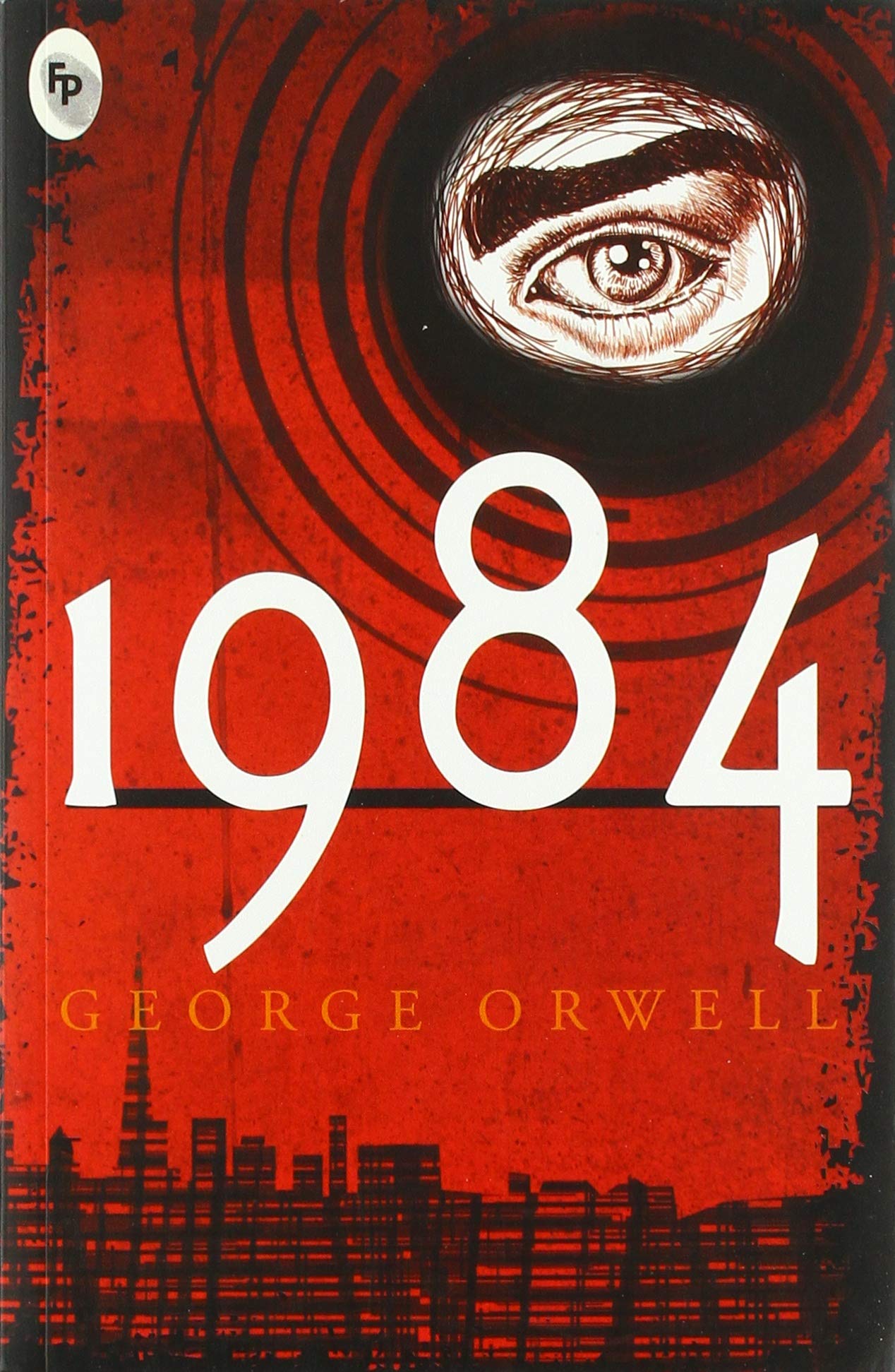PLOT: 5/5
RELEVANCE: 5/5
CHARACTERS: 5/5
ENTERTAINMENT: 5/5
OVERALL: 5/5
After a long time, I finally had something in my hands that wasn’t about figuring out Tharoor’s complex and demanding vocabulary as I made my way to the book’s climax. I had no idea, though, that those 300 pages made more sense than any great thinker or philosopher had ever managed to with his narratives about the world and its incredible power politics. Additionally, it wasn’t “your typical fiction” because fictions tend to be dramatic.
Despite being a classic that has stood the test of time, 1984 has a modern feel. I chose to join the conspiracy myself because I was fascinated by how appealing it has remained for so many generations. As long as I didn’t get to the work’s appendix, finishing 100 pages every day of an ebook didn’t feel like a success. The novel had a lasting impression on me since I couldn’t stop thinking about it all day. It appeared to have been written in this day and age and was so true to current events that escaping seemed pointless.
One aspect of Winston Smith’s existence, the contradiction, would keep you glued to the screen for days. While his ability to grasp the idea of true freedom was impressive in and of itself, it was equally remarkable to observe the difficulty his mind was having in trying to distinguish between reality and illusion that was constantly present because of the intense gaze of Big Brother’s eyes and the indiscernible curve under his mustache that was impossible to ignore.
Big Brother’s presence seemed nearly tangible, given the clarity of the features. He left his imprint everywhere, whether physically or mentally (or mentally). Every item, whether living or dead, saw Big Brother everywhere, in the shape of posters, advertisements, televised shows, songs, the party’s scheduled Hate Hours, the transformation of young children into spies wearing blue uniforms, and other things. The list of things Big Brother and his state control philosophy were praised for never ended.
The existence of Big Brother is left unstated, but whether he existed or not, his catchphrase “Big Brother Is Watching You” served as the people’s guide for every step and breath. Winston Smith came to understand his dislike of the state and its oppressive ministers as a result of his attempts to confront his problems and accept the world as it was.
Winston fails to progress toward his goals despite exerting sufficient effort to oppose the regime while using extreme caution to avoid being arrested for a “thoughtcrime.”
The novel takes you on an emotional rollercoaster that a human brain can handle without detracting from the plot. You feel annoyed, shocked, betrayed, and grieved all at once due to Winston’s poor decision-making skills following a seemingly daring love story that you support.
In 1984, the narration was so overwhelming that you are left to take in all of the heart-pounding conclusions for which you were unprepared. It is amusing that all of this could come from a three-hundred-page novel.
It’s hard to get over the notion that a mere work of fiction from the 1940s can convince you that human exploitation and power struggles exist in the real world just as they do in the fictional one and that Smith experiences them daily.
The story isn’t just concerned with the state and how it uses unfair tactics to carry out its will, but it’s also worried about how people interact with one another. A story about vast inequality, a story about a complete betrayal by your instincts that puts you in the hands of your enemy, and a story about parents who can’t trust their children served as a fresh fish. Other stories included the inability of colleagues to sit with each other and the inability of a person even to think the thoughts of his liking. It is an aerial perspective of a world where social pressure exists to fit in, and other people are watching people.
The epilogue reveals that Orwell was a child of his time who knew more than any prior generation of intellectuals close to reaching complete human evolution. Another possibility is that he merely wished to be truthful with the young population about to read his excellent work, which painted a vivid image of human nature and the desire for power that lay beneath the smokescreen of 1984. To fully comprehend what Smith meant when he declared, “Freedom is the freedom to say two plus two is four,” it is imperative that we take a close look at the current, constantly changing global scene. Everything else happens if that is permitted.
It begs the question of whether the definitions of the ideals of the constitutions from all over the world that have been presented to us are accurate or if they are only the product of numerous philosophers. The sole purpose of this review is to encourage people who have yet to read 1984 but have it on their want list to do so immediately.
Also Read: Animal Farm By George Orwell Book Review

